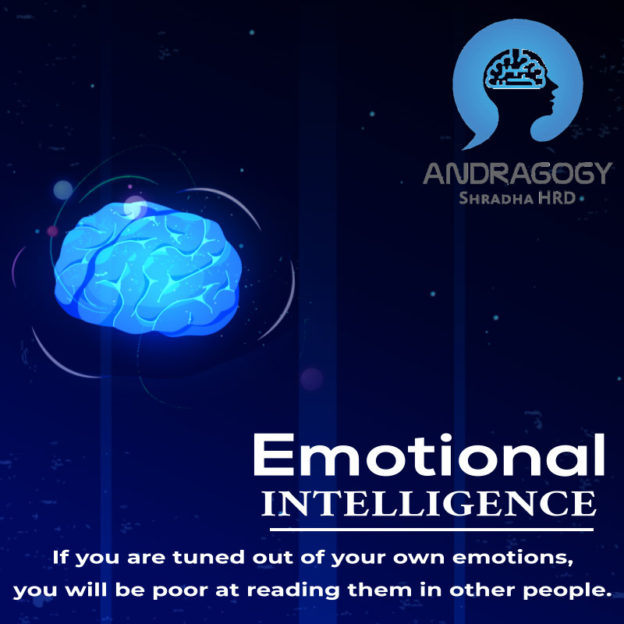
Last month, at Shradha HRD, we were designing a learning intervention for managers. One component of the module was the skills and behaviors that emotionally intelligent people display. We came across this question during our research.
There is an external vocabulary that can help you describe “the world well”. Then there is an vocabulary that can describe your emotions well. The difference is striking, even though we are speaking about vocabulary in both cases.
While interacting with teenagers, most experiences are “awesome”. A McDonalds burgers, a Professor, a movie and even a trip to the moon would all be categorized as “simply awesome”. The challenge here lies in our inability to correctly label our emotions while going through different life experiences. Emotional intelligence above all is the ability to be in touch with your own emotions. Are you happy, overjoyed or ecstatic. Moved, profoundly impacted or going through a life changing experience.
Building awareness around our own emotions helps us deal with our emotions better. Including anger, pain, depression and despondency !!!!
There is a little bagful of words that we carry around all the time, the one we often refer to as our Vocabulary. We replenish our wardrobes often, throwing out old shirts and dresses that no longer fit and add fresher ones that define us better with each growing year. But that little bag of words remains unchanged. Years go by and we often hear ourselves saying the same words… “Oh that makes me so mad” “I feel bad” “I am so angry”… especially with our feelings, we tend to use very few and generic words to express how we feel.
While all of us experience a wide array of emotions, only a select few can accurately identify them and use the right words to express them. This capability of individuals to recognize their own emotions and those of others, discern between different feelings and label them is what is known as emotional Intelligence. Research shows that only 36 % of people have the words to do this. Without the insights into exactly what we are feeling and without the right words to express them, we are binging on many problems. Unlabeled emotions often go misunderstood, which leads to irrational choices and counterproductive actions.
While many might describe themselves as simply feeling “bad,” emotionally intelligent people can pinpoint whether they feel “irritable,” “frustrated,” “disappointed” or “anxious.” The more specific your word choice, the better insight you have into exactly how you are feeling, what caused it and what you should do about it.Like the anecdotal angry career women profiled in the #shradhahrdblog#, Recognizing and identifying emotions is a prerequisite for developing emotional intelligence.
So growing our kitty of words, with feeling words and self awareness is just one of the five things we can do to be more emotionally Intelligent at the workplace. According to David Goleman there are 4 more- self regulation, intrinsic motivation,Empathy and Social Skills. Developing these skills improves our Emotional quotient which plays a vital role in many everyday decisions we make at the work place, such as how we deal with pressure, decisions on promoting, hiring and firing employees and dealing with conflict and change.
Pack then a bag of feeling words and get on the long but rewarding journey of emotional intelligence. It is a journey with 5 flagship places (as listed by David Goleman ) to visit. Strew with events and eventualities,you may find yourself trudging slowing, one word or thought at a time, but a journey that rewards with better mental health, well being and career success.
